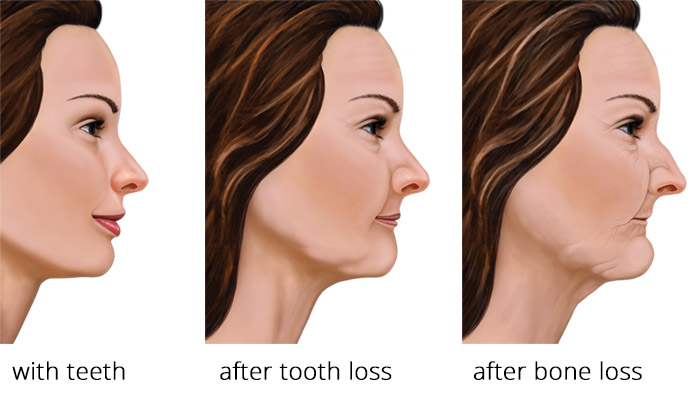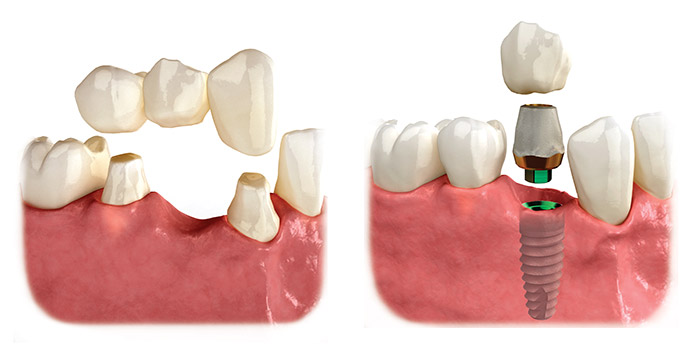Einen bwin Bonus erhalten Sie auf www.sportwettenbonuscode.com im Angebot.


Dental implants are the most permanent solutions to tooth loss. Whether you are missing a single tooth, multiple teeth or all your teeth, dental implants are arguably the best way to renew your smile, your chewing efficiency and your quality of life.
To learn how Retter Dental Care uses the most advanced technology to perform our implant treatments click on the link below:
CBCT guided dental implant surgery
When a tooth is lost, the specialized bony process that houses the tooth begins to resorb due to lack of stimulation. This causes a decrease in width and height of the bone in the area that the tooth was lost in. Neighbouring teeth and opposing teeth soon begin to move into the space. This causes food lodgement, subsequent decay, gum disease and abnormal forces being transmitted to the remaining teeth. This can lead to fracture of cusps which may necessitate root canal treatment or extraction. Tooth loss can also cause the cheek and lips to collapse giving a more aged look.

The consequences of tooth loss can be prevented by replacing the lost tooth in a timely manner. Although there are several options available to replace a missing tooth, the number one choice for replacing lost teeth are dental implants. Implants are tiny titanium screws or posts that are surgically placed into the bone. Once integrated into bone, they act like roots onto which small posts are attached – that protrude through the gums. These posts provide stable anchors to the replacement teeth. Implants maintain the bone height by stimulation and prevent unnecessary trimming of adjoining teeth like with a conventional dental bridge. Since implants are titanium posts there is no chance for them to decay. Implants can service you for a lifetime with regular professional cleanings and proper home care.
Many people who are missing a single tooth opt for a fixed bridge. However, bridges may require the cutting down of healthy, adjacent teeth that may or may not need to be restored in the future. Then there is the additional cost of possibly having to replace the bridge once, twice or more over the course of a lifetime due to decay or gum problems affecting the anchor teeth.

Another option to replace missing teeth is a removable partial denture or complete denture depending on the number of teeth missing. The chewing efficiency with a denture is reduced to more than half of that of natural teeth. The teeth that support the partial denture are weakened due to the excessive loads acting on them and eventually are lost. The denture rests on the gums causing tissue abrasion and bone loss. Removable dentures may slip or cause embarrassing clicking sounds while eating or speaking.
Studies show that within five to seven years there is a failure rate of up to 30% in teeth located next to a fixed bridge or removable partial denture. These are just some of the reasons that make dental implants far superior to other treatments available for tooth replacement.
Anyone who is missing one or several teeth is a candidate for implants. With the exception of growing children, dental implants are the solution of choice for people of all ages, even those with the following health concerns:
Existing Medical Conditions: If you can have routine dental treatment, you can generally have an implant placed. While precautions are advisable for certain conditions, patients with such chronic diseases as high blood pressure and diabetes are usually successful candidates for dental implant treatment.
Gum disease or problem teeth: Almost all implants placed in patients who have lost their teeth to periodontal disease or decay has been successful.
Currently wearing partials or dentures: Implants can replace removable bridges or dentures, or they can be used to stabilize and secure the denture, making it much more comfortable.
Smokers: Although smoking lowers the success rate of implants, it doesn’t eliminate the possibility of getting them.
Designed by InfoSign Média Inc, Web Development by concept9 Digital Agency • Privacy & Cookie Policy